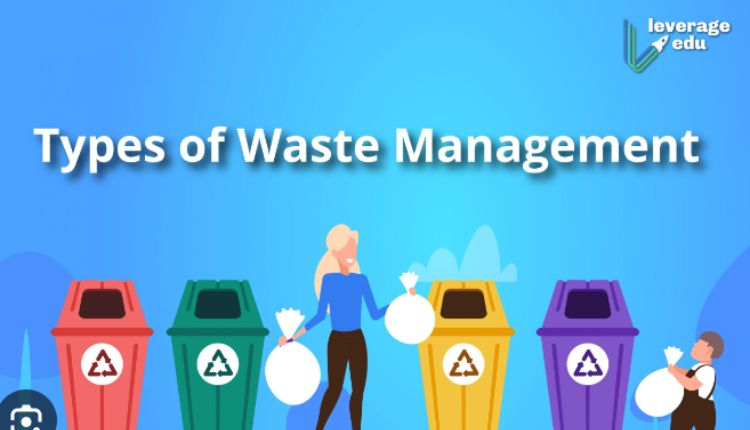In the current era, characterized by growing environmental awareness, the adoption of effective waste management strategies has become paramount. As our society continuously produces higher volumes of waste, it is crucial to implement efficient strategies to manage and mitigate its impact. One such strategy is the National Account Program, which plays a vital role in waste management. Join us in this blog as we uncover the importance of waste management and uncover five strategies that can lead us toward a more sustainable future.
Importance of Waste Management
Waste management is crucial for several reasons, including:
Environmental Preservation
Proper waste management helps protect the environment by preventing pollution and minimizing the impact of waste on ecosystems. By implementing effective waste disposal and treatment methods, we can reduce the contamination of soil, water bodies, and air, preserving the natural habitats of plants and animals. By taking these steps, we actively promote a sustainable and healthier planet, leaving a positive imprint on the future.
Resource Conservation
Effective waste management facilitates resource conservation by promoting recycling and reusing materials. Rather than sending waste to landfills, where valuable resources are buried, recycling enables the recovery and reuse of materials like paper, plastics, and metals. By diverting waste from landfills and incorporating recycling programs, we can conserve energy, reduce the extraction of raw materials, and minimize the strain on natural resources.
Public Health Protection
Improper waste management can pose significant risks to public health. Pests, including rodents and insects, are drawn to areas with accumulated waste, creating a potential health hazard as they can carry diseases that are detrimental to humans. Moreover, hazardous materials disposed of incorrectly can contaminate water sources and pose serious health hazards. We can safeguard public health by implementing effective waste management strategies, ensuring cleaner and safer community living environments.
Waste Management Strategies Offered By Commercial Junk Removal Experts
Now let’s explore five effective commercial junk removal services offered by professionals.
1. Source Reduction
Source reduction focuses on minimizing the generation of waste at its source. This strategy involves reducing packaging, using reusable products, and implementing practices that promote waste prevention. By promoting consumer awareness and encouraging conscious decision-making, we have the power to make a substantial impact on waste reduction and achieve long-term environmental advantages.
2. Recycling and Composting
Recycling and composting are essential waste management strategies contributing to resource conservation and waste diversion. By collecting and processing materials like paper, plastics, glass, and metals, recycling enables the transformation of these resources into new products. Conversely, composting involves decomposing organic waste, such as food scraps and yard trimmings, to create nutrient-rich compost for soil enhancement. Implementing comprehensive recycling and composting programs encourages the responsible disposal of waste and the Recovery Of Valuable Resources.
3. Waste-to-Energy Conversion
The implementation of waste-to-energy conversion entails the utilization of certain waste types through processes such as incineration or anaerobic digestion, in order to extract their energy potential. Leveraging advanced technologies, waste-to-energy facilities can efficiently transform waste into electricity or heat, thereby decreasing the need for fossil fuels and making significant contributions towards a more sustainable and diversified energy portfolio. However, ensuring that such facilities meet strict environmental standards to minimize emissions and maximize energy efficiency is crucial.
4. Landfill Management
While reducing waste generation and promoting recycling are crucial, landfills remain integral to waste management. Effective landfill management involves implementing measures to reduce the environmental impact of landfills, such as proper site selection, engineering controls to prevent contamination, and landfill gas capture systems. Landfill operators must also comply with regulations and adopt the best waste compaction, covering, and monitoring practices to minimize environmental risks.
5. Public Education and Awareness
Education and awareness play a vital role in waste management. Educating the public about the importance of waste reduction, recycling, and responsible disposal can foster behavioral changes and promote active participation in waste management practices. Public education campaigns can include workshops, seminars, and informational materials highlighting waste’s environmental impact and providing guidance on proper waste management techniques. Furthermore, by raising awareness about the advantages of waste management, individuals are motivated to adopt sustainable practices in their daily routines, fostering a culture of environmental responsibility.
Efficient waste management is crucial for safeguarding the environment, preserving resources, and ensuring public health protection. We can create a sustainable future by implementing the five waste management strategies discussed. Through the adoption of these strategies, the volume of waste destined for landfills is decreased, promoting resource conservation, mitigating pollution, and combating climate change. The collective collaboration of individuals, communities, businesses, and governments is imperative in adopting and implementing these strategies, ultimately guaranteeing a cleaner and healthier planet for the benefit of future generations. Let us embrace waste management principles and work towards a more sustainable and waste-free world. Together, we can significantly impact and create a greener future for all.

